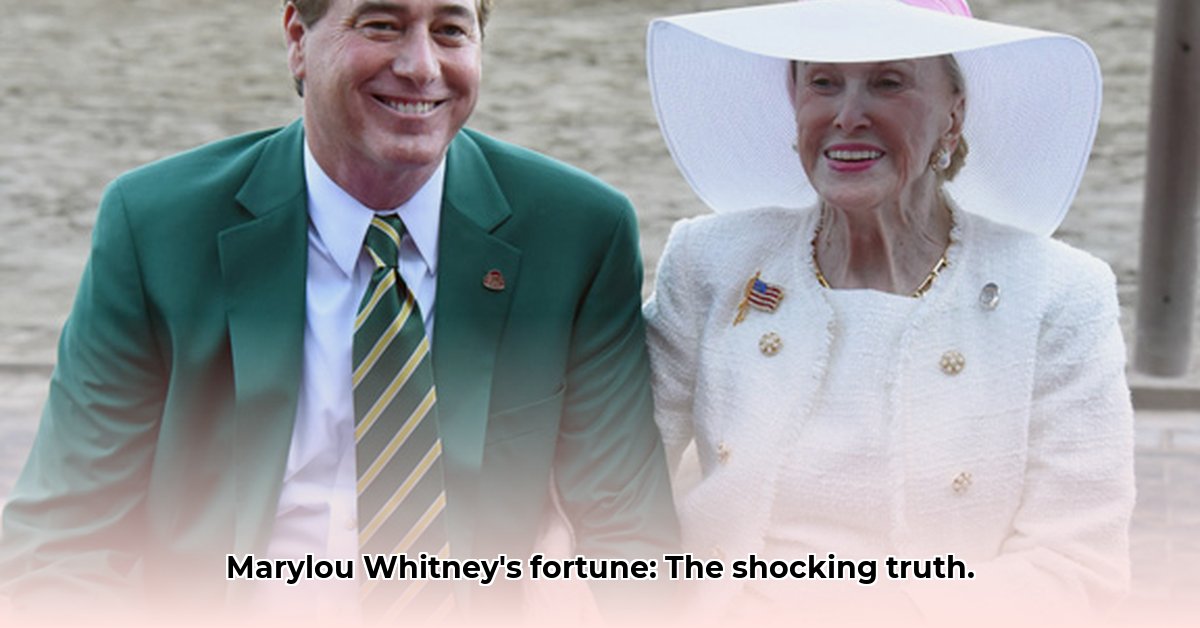
The Intrigue of the Whitney Estate: More Than Just Dollars and Cents
Marylou Whitney's passing left behind a significant fortune, the exact amount of which remains undisclosed. However, the meticulous structure of her will offers invaluable insights into high-profile estate planning. This wasn't merely about dividing assets; it was a strategic blueprint for shaping her legacy. A key element of her strategy? A "no-contest clause," a legal tool designed to deter family disputes.
The Secret Weapon: The No-Contest Clause
Marylou Whitney's will cleverly incorporated a no-contest clause (NCC). This legal provision essentially states that anyone challenging the will's validity forfeits their inheritance. Legal under New York State law, it served as a powerful deterrent against costly and emotionally draining litigation. This proactive measure, in essence, prioritized smooth estate settlement. How effective was it? The lack of challenges speaks volumes.
Distributing the Wealth: A Closer Look at the Will's Provisions
The will's provisions allocated a substantial portion of Whitney's assets to her husband, John Hendrickson. Her children received varying shares, with evident inequalities in distribution. Adding an unexpected twist, two longtime employees also received significant gifts—houses on her estate. Was this equitable? This uneven distribution raises questions about contributing factors, both financial (pre-existing wealth) and familial (close relationships). The absence of legal challenges suggests explanations beyond simple fairness.
Beyond Personal Wealth: A Legacy of Giving
Marylou Whitney's estate plan also extended beyond her immediate family. The sale of some assets funded a new health clinic in Saratoga Springs, a testament to her commitment to community. This philanthropic aspect demonstrates the broader impact of sophisticated estate planning, incorporating a desire to give back and shape a lasting legacy.
Legal and Tax Implications
The legal and tax ramifications of Whitney's estate were complex, involving significant tax considerations such as estate taxes and inheritance taxes. While precise details are private, the estate's settlement likely benefited from professional tax planning, minimizing the financial burdens on beneficiaries. The seamless process is a clear indication of expert legal advice.
Lessons from Marylou's Plan: Key Takeaways for High-Net-Worth Individuals
Marylou Whitney's estate provides invaluable lessons for high-net-worth individuals and their advisors. Her plan highlights the importance of:
- Clear Communication: Open dialogue with family members about inheritance expectations prevents future disputes and resentment.
- Strategic Planning: Employing legal tools like no-contest clauses acts as a deterrent against challenges, ensuring smoother transitions.
- Consideration of All Beneficiaries: Recognizing the needs and relationships of family, employees, and charities creates a holistic estate plan.
- Thoughtful Philanthropy: Incorporating charity into your estate plan extends your impact beyond your lifetime.
Summary Table: Key Points of Marylou Whitney's Estate Plan
| Feature | Description | Significance |
|---|---|---|
| No-Contest Clause | Penalizes anyone challenging the will's validity. | Prevented potential disputes and ensured a smooth probate process. |
| Unequal Asset Distribution | Children received unequal shares. | Highlights the complexity of equitable distribution in high-net-worth estates and possible influencing factors. |
| Significant Employee Bequests | Generous gifts to long-term employees. | Demonstrates consideration for loyalty beyond immediate family. |
| Charitable Giving | Estate proceeds contributed to a community health clinic. | Demonstrates the power of integrating philanthropy into legacy planning. |
Marylou Whitney's estate, while shrouded in some mystery regarding specific net worth figures, stands as a compelling case study in sophisticated estate planning. It underscores the importance of meticulous planning, expert legal counsel, and consideration of both family dynamics and philanthropic goals. Her legacy serves as a potent reminder: Effective estate planning goes beyond mere asset division; it's about shaping a lasting legacy reflecting your values and intentions.